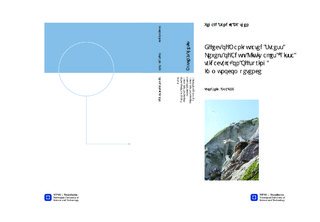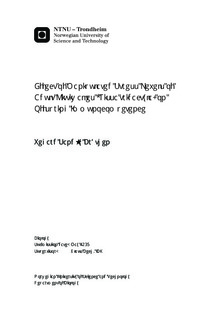| dc.description.abstract | Low food availability increase food stress and can cause a shift of energy expenditure to invest in self-survival rather than reproductive effort in breeding Black-legged kittiwakes (Rissa tridactyla). This affects early development fitness in offspring, which impact on their long-term survival. The present study investigates effects of stress in adult kittiwakes on immunocompetence of offspring, which is recognized as important trait in long-term survival. Increased parental stress is predicted to negatively affect immunocompetence and body condition. To assess immunocompetence, a ratio between innate hetrophils and acquired lymphocytes were calculated, together with measured reactivity of natural antibodies and complement on foreign antigen. Data was collected over two breeding seasons in a medium sized colony on the west coast of Svalbard, Norway. In one season, parental stress was manipulated by exposing individuals for implants with exogenous corticosterone for a three day period. A control group was exposed to sham implants. Stress and body condition was recorded in parents and offspring, along with immunocompetence in offspring approximately 15 days after implants were removed. In the second season, data of the same measurements were collected without stress-manipulations. Both seasons provided normal foraging conditions. I found an unexpected decrease in baseline corticosterone in stress-manipulated individuals, with corticosterone values being 55% lower than that of sham- treated individuals at the latest point of sampling. Parental body condition was not affected by treatments. This was accompanied by a greater overall fitness in the offspring of stress- manipulated adults. Hence, my results support a fixed investment hypothesis , in which parental birds will increase their reproductive effort if food stress is decreased under normal foraging conditions. Immunocompetence was only partly affected by parental treatment, while body condition was significantly higher in chicks of corticosterone-implanted individuals. Hence, there was predicted a greater allocation of energy towards higher body condition, rather than immunocompetence. This might imply a higher selection for body condition during development, when provided normal conditions. This is the first study to present experimental data on immunocompetence in offspring of adult kittiwakes when the parental stress level is manipulated. | nb_NO |

